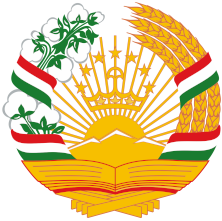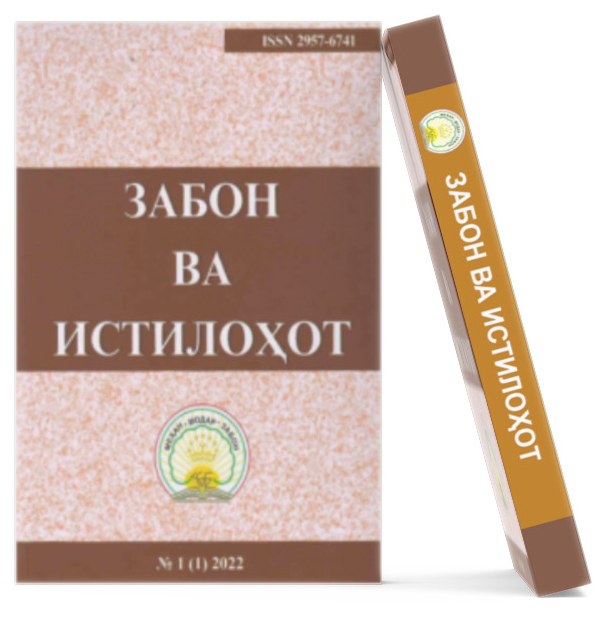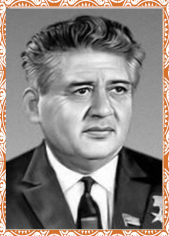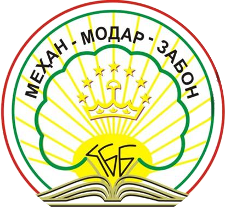Address - Адрес – Нишонӣ – Суроға
The term “суроғ” is a Tajik-Farsi term, which is a loanword from Turkic language, and this term in old dictionaries regarding the history of appearance has a meaning of “суроғ” or “سراغ” or “information”, “searching”, “exploration” etc. In dirrerent encyclopedias the term “суроғ” has the following meanings: searching, finding; waiting; sign, track, information, news etc. The term “суроғ” in the above meanings was used in writings of Khozik, Sayido, Savdo, Jomi, Bedil and some other outstanding writers.
In the «Dehhudo» dictionary, the term «суроғ» or «سراغ» has the following meaning: «Суроғ» - footprint of a person or others; this term is also was used as footprint, request, search, find, get and give. (Onandroj, Giyos, Ul-Lugot). In Turkic language the term “сӯроғ” or “ سوراغ” has a meaning of searching or researching, sign, information or news; in other words it has a meaning of delegence (Giyos, Ul-Lugot)».
Dehhudo also explain the verb structure of “суроғ” term: суроғ додан - нишон додан - show; суроғ доштан — огоҳӣ доштан - warn; суроғ кардан — нишон ёфтан - find, огоҳӣ ёфтан - inquire; суроғ гирифтан — хабар пурсидан - get information, бохабар шудан - be informed (Dehhudo. Dictionary. Teheran, 1998; can be used as a reference to Tajik Spelling Dictionary, Moscow, 1969; Tajik to Russian Dictionary. Dushanbe, 2006; Complete Tajik Spelling Dictionary. Dushanbe, 2011.)
The comment from «Farsi Dictionary - Amid» can also be referenced for “суроғ” term: «суроғ - sign and mark, footprint; ask about someone’s location or place; follow someone; looking for someone; суроғ гирифтан - to find someone, ask someone’s location from others» (Farsi Dictionary by Amid. Teheran, 1387).
In Uzbek language this term is used as “so‘roq” or “сӯроқ” or “سوراق” and has the following meaning: 1. Ask, Inquire; 2. (As a legal term) interrogation, to asl from the accused about the fault; 3. Request, questionnaire. This term in Uzbek language is also used in the following meanings: бесӯроқ — бидуни пурсиш - without request, бидуни иҷозат - without permission; сӯроқламоқ — пурсуҷӯ кардан - ask questions; сӯроқсиз — бидуни рухсат - without access; бидуни бозпурсӣ - without inquiry. (Uzbek to Farsi Dictionary. Muham Khalim Yorkin, Shafikha Yorkin. Teheran, 1386).
Today in Tajik language the term “address” is used as «нишонӣ» and «суроға». Адрес - Address (in French - adresse < addresser has a meaning of «ирсол додан - transfer, send») in other languages in has different meaning, as well as the main meaning of «place or location of building or someones living place». (Big Dictionary of Foreign Words. Moscow, 2007).
The international term “адрес” started to be used in Tajik language by the means of Russian language starting at 20s in ХХ Century and is still well known term in the country. Even the term “адрес” or “address” in Tajik language (as well as in Farsi - ādres) and other former Soviet Union counties was a single term, did not have other equivalents and used as a single term for all languages.
In Farsi this term as a Frech loanword was used “ādres”, and later it was equivalent to Farsi term — «нишонӣ», which is used in Farsi dictionaries.
There are three equivalents used In Tajik language: “адрес” (via Russian language), нишонӣ (via Farsi language) ва суроға (from суроғ+а is based on Turkic term “сӯроғ”). It needs to be reminded that the «нишонӣ» and «суроға» terms have been entered into Tajik language in 90s of XX Century in the first «Tajik to Russian Dictionary» (p.1, 2004; p.2, 2005 and Second Edition in 2006).
The “суроға” term is formed by two parts, the term “суроғ” and suffix “-а” that is specific to Tajik language. The other Turkic languages or non-Turkic languages have no formed the term “суроға” by adding the suffix “-а” from the Turkic term “суроғ”. This form is only used in Tajik language regarding the legacy formations.
In «Russian to Tajik Dictionary» printed on 1933 in Latin alphabet the only term «адрес» is used. This way, in two other dictionaries — «Russian to Tajik Dictionary» printed in 1949 and «Russian to Tajik Dictionary» printed in 1985, besides other Tajik equivalents, the term «адрес» is also used. In Farsi language, the term «нишонӣ» is equivalent to “адрес” term (Farsi - ādres). The term “нишонӣ” in «Dictionary of Dehhudo” along the other meanings, regarding the historical formation, there is one other meaning of «нишон, суроғ, адрес» is used.
Regarding the usage of these terms, it looks like that «нишонӣ» is our more traditional former term, where the term «суроға» was used in our language for a long period. This way, the term “нишонӣ” have to be used as the first priority in tajik language usage. As for the term «адрес», then this is an international term and can be also used in Tajik language as it is used in Farsi and Dari.
D. Saymiddinov
 Даромад
Даромад Харита
Харита Тамос
Тамос






 Адиб, олим ва асосгузори адабиёти муосири тоҷик. Аввалин Президенти Академияи илмҳои Ҷумҳурии Тоҷикистон. Муаллифи асарҳои «Таърихи амирони манғитияи Бухоро», «Таърихи инқилоби фикрӣ дар Бухоро», «Намунаи адабиёти тоҷик», «Дохунда», «Ғуломон», «Ёддоштҳо» ва дигар асарҳо, ки ба 29 забони хориҷӣ нашр шудаанд.
Адиб, олим ва асосгузори адабиёти муосири тоҷик. Аввалин Президенти Академияи илмҳои Ҷумҳурии Тоҷикистон. Муаллифи асарҳои «Таърихи амирони манғитияи Бухоро», «Таърихи инқилоби фикрӣ дар Бухоро», «Намунаи адабиёти тоҷик», «Дохунда», «Ғуломон», «Ёддоштҳо» ва дигар асарҳо, ки ба 29 забони хориҷӣ нашр шудаанд. Олим, академики Академияи Илмҳои ИҶШС, арбоби ҳизбӣ ва давлатӣ, муаллифи китоби оламшумули «Тоҷикон» ва зиёда аз 300 асару мақолаҳо.
Олим, академики Академияи Илмҳои ИҶШС, арбоби ҳизбӣ ва давлатӣ, муаллифи китоби оламшумули «Тоҷикон» ва зиёда аз 300 асару мақолаҳо. Шоири халқӣ, раиси Иттифоқи нависандагони Тоҷикистон, Қаҳрамони меҳнати сотсиалистӣ, Раиси Кумитаи якдилии халқҳои Осиё ва Африқо. Барои достонҳои «Қиссаи Ҳиндустон»(1948), «Ҳасани аробакаш», «Чароғи абадӣ», «Садои Осиё»,(1960) «Ҷони ширин» (1963) бо ҷоизаҳои давлатии ИҶШС, ҶШС Тоҷикистон ва байналмилалии ба номи Ҷ. Неҳру (1967) сарфароз шуда буд.
Шоири халқӣ, раиси Иттифоқи нависандагони Тоҷикистон, Қаҳрамони меҳнати сотсиалистӣ, Раиси Кумитаи якдилии халқҳои Осиё ва Африқо. Барои достонҳои «Қиссаи Ҳиндустон»(1948), «Ҳасани аробакаш», «Чароғи абадӣ», «Садои Осиё»,(1960) «Ҷони ширин» (1963) бо ҷоизаҳои давлатии ИҶШС, ҶШС Тоҷикистон ва байналмилалии ба номи Ҷ. Неҳру (1967) сарфароз шуда буд. Президенти Ҷумҳурии Тоҷикистон. 19 ноябри соли 1992 дар иҷлосияи XVI Шўрои Олии Ҷумҳурии Тоҷикистон раиси Шўрои Олии Ҷумҳурии Тоҷикистон, 6 ноябри соли 1994 бори аввал, солҳои 1999, 2006 ва 2013 Президенти Ҷумҳурии Тоҷикистон интихоб гардидаст.
Президенти Ҷумҳурии Тоҷикистон. 19 ноябри соли 1992 дар иҷлосияи XVI Шўрои Олии Ҷумҳурии Тоҷикистон раиси Шўрои Олии Ҷумҳурии Тоҷикистон, 6 ноябри соли 1994 бори аввал, солҳои 1999, 2006 ва 2013 Президенти Ҷумҳурии Тоҷикистон интихоб гардидаст. Нусратулло Махсум (Лутфуллоев) ходими давлатӣ ва ҳизбӣ. Солҳои 1924-1926 раиси Кумитаи инқилобии ҶМШС Тоҷикистон, солҳои 1926-1933 раиси Кумитаи Иҷроияи Марказии ҶШС Тоҷикистон.
Нусратулло Махсум (Лутфуллоев) ходими давлатӣ ва ҳизбӣ. Солҳои 1924-1926 раиси Кумитаи инқилобии ҶМШС Тоҷикистон, солҳои 1926-1933 раиси Кумитаи Иҷроияи Марказии ҶШС Тоҷикистон. Ходими давлатӣ ва ҳизбӣ. Солҳои 1929-1931 котиби Ҳизби коммунистии ҶШС Тоҷикистон, солҳои 1933-1937 Раиси Кумитаи Иҷроияи Марказии ҶШС Тоҷикистон.
Ходими давлатӣ ва ҳизбӣ. Солҳои 1929-1931 котиби Ҳизби коммунистии ҶШС Тоҷикистон, солҳои 1933-1937 Раиси Кумитаи Иҷроияи Марказии ҶШС Тоҷикистон.


